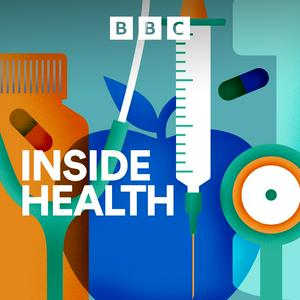Over 1.5million adults in the UK tried weight loss drugs in 2024-25. Many swear by them, but they have been associated with side effects including nausea and, in some cases, extremely painful gallstones. But what does the evidence actually tell us, and what is the wider impact on the way we view our bodies in society?
James Gallagher is joined by Professor of Cardiometabolic Medicine at the University of Glasgow Naveed Sattar, Dr Beverley O’Hara, Lecturer in Public Health Nutrition at Leeds Beckett University, and Dr Margaret McCartney, resident Inside Health GP. They discuss what the evidence tells us about the potential known side effects of these weight loss drugs, and the potential impact their use has on our view of obesity as a society. We also hear from Sarah Le Brocq, who has struggled with obesity all her adult life and has been on these drugs for the past 2-3 years about her experiences.
Margaret McCartney has no conflicts of interest to declare.
Beverley O’Hara has no conflicts of interest to declare. She has 2 roles with the Association for the Study of Obesity (voluntary academic positions).
Naveed Sattar has consulted for and/or received speaker honoraria from AbbVie, Amgen, AstraZeneca, Boehringer Ingelheim, Carmot Therapeutics, Eli Lilly, Gan & Lee, GlaxoSmithKline, Hanmi Pharmaceuticals, Kailera, Mass Medicines, Menarini-Ricerche, Metsera, Novo Nordisk, Pfizer, Regeneron, Roche, UCB Pharma, and Verdiva Bio; and received grant support paid to his University from AstraZeneca, Boehringer Ingelheim, Novartis, and Roche.
Presenter: James Gallagher
Producer: Hannah Fisher
Researcher: Tom Hunt
Production coordinator: Stuart Laws
Content Editor: Ilan Goodman


